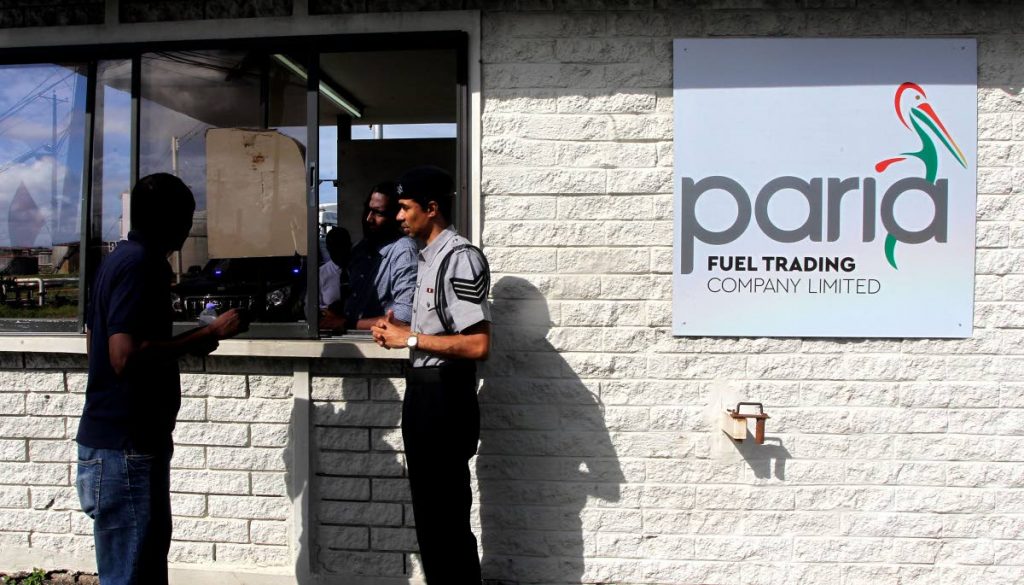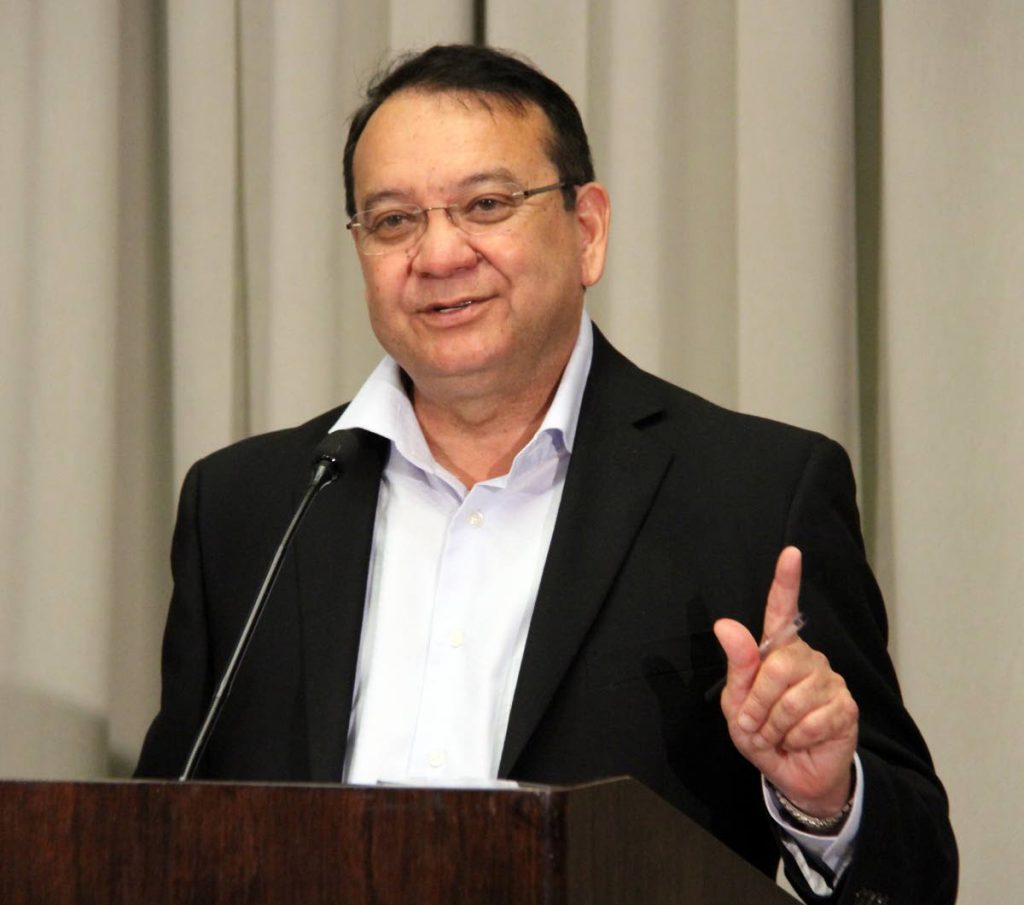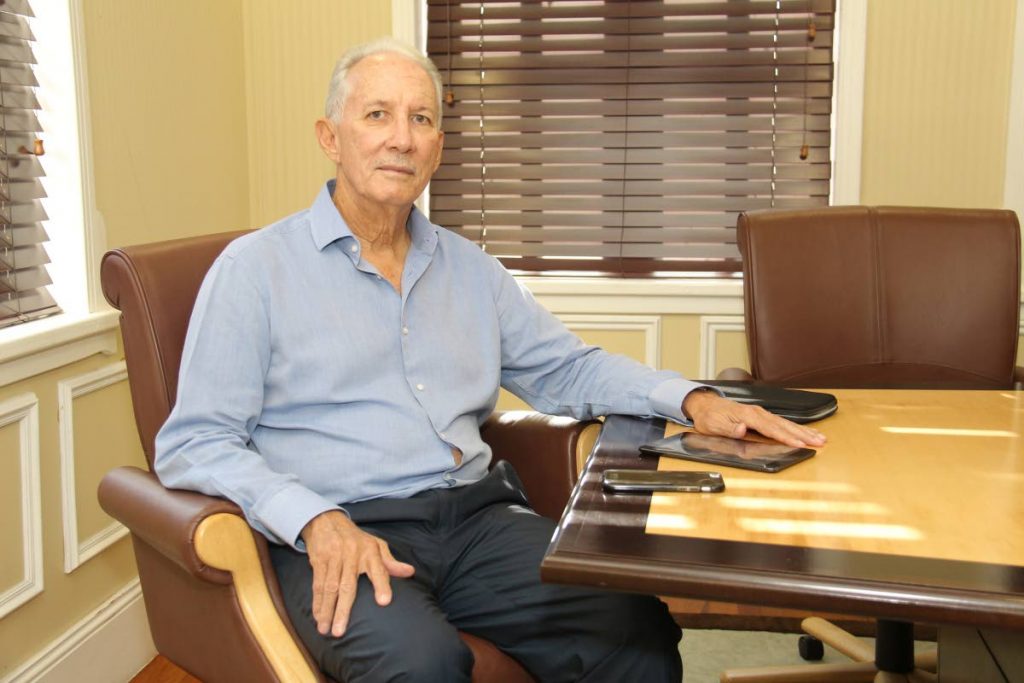OOPS, NOT FOR SALE

PARIA Fuel Trading Co Ltd was “inadvertently” put up for sale.
That, at least, is Energy Minister Franklin Khan’s response to an Express article on Sunday that quoted Paria’s chairman, Wilfred Espinet, as saying the company’s business – importing fuel for the domestic and regional market – was not profitable and thus it would need to be divested.
In a release yesterday, the minister insisted this was not so, declaring, “I wish to make it clear that the divestment of Paria Fuel Trading Company is not within the current mandate given by the Government to Trinidad Petroleum Holdings Ltd (Paria’s parent company).”
As such, Khan ordered Trinidad Petroleum to “withdraw and retract any advertisement or Request for Proposals (RFP) that may have been inadvertently issued for the sale of the Paria Fuel Trading Company Limited.”
Khan did not respond to Newsday’s calls, texts or e-mails to clarify who approved the initial RFP and how this could have happened, especially since he should have been involved as line minister.
Trinidad Petroleum was created last year as part of the restructuring of Petrotrin. The new group of companies comprises Paria; downstream producer Heritage Petroleum Co Ltd; Guaracara Refining Co Ltd, which oversees the now-shuttered Pointe-a-Pierre refinery; and Petrotrin, which exists only to deal with historical matters.
Espinet, who was the chairman of Petrotrin, is the chairman of Trinidad Petroleum, as well as each individual company.

Khan insisted in his statement that Paria was “a strategic state asset” and played an important role in ensuring a secure fuel supply for the country, notably the transport sector. The company also imports fuel for distribution to other Caricom countries.
The company operates out of Pointe-a-Pierre, since most of the bunkering facilities for storage facilities are on the refinery’s compound. As Khan noted, Paria is “invested with the ownership of strategic assets such tank farms, port infrastructure and real estate which were previously owned by the predecessor company Petrotrin.” Paria’s location, then is probably the source of the confusion.
WHAT’S REALLY GOING ON HERE?
In a brief phone call with Newsday, Espinet said an RFP for Paria’s sale did not go out. He initially directed questions about his reported comments to the ministry, but when Newsday told him the ministry had sent out a statement, he said no RFP had gone out for the sale.

One did, however, go out for the refinery. He clarified, though, that it was not an advertisement for an RFP, but rather, an expression of interest, and included in that was Paria. Asked to explain what that meant, he said he would send out a release. Up to press time, neither Espinet nor Trinidad Petroleum had issued a release.
Opposition Pointe-a-Pierre MP David Lee, who on Sunday criticised any decision to sell Paria as “a slap in the face,” said this latest statement mean clearly, “the left hand doesn’t know what the right hand is doing.
“If Espinet made that statement, then clearly there is some kind of miscommunication between him and the minister, because he (Khan) is refuting everything,” Lee told Newsday in a phone call.
He questioned whether Espinet was “a law unto himself” and the lack of communication and direction a betrayal of citizens who are not aware of the decision-making. He insisted any futher discussion on Petrotrin should take place in the Parliament, particularly the parliamentary oversight committee for energy – which he noted had not been convened for over a year.
THIS CAN’T BE HEALTHY
Former energy minister Kevin Ramnarine said when a chairman and his line minister contradict each other within 24 hours on such a crucial matter, it cannot be healthy for confidence in the energy sector.
“It can send the signal that the country’s business is being conducted in an ad-hoc manner.” Moreover, it suggests that there is a disconnect between Trinidad Petroleum and the ministry, which is a matter of concern, since the ministry is the company’s regulator.
This is not the first time Espinet – and the ministry – have been scrutinised and criticised for mixed messages.
Last April, “a technical and administrative error” at the Energy Ministry was blamed for incorrect energy production and outlook data being sent to international monitors, resulting in a “negative outlook” from Standard and Poor’s. In August, when it was first announced that the refinery was to be shut down, Espinet was adamant that, despite rumours, it would not be sold.
But the Prime Minister, in a release to the nation just a week later, offered the refinery to the Oilfield Workers’ Trade Union if the union could afford it.
In September, after confusion about just how many people would be let go from Petrotrin and how much it would cost to shut down, again because of mixed messages from the government and the company, Espinet famously took the blame for any and all confusion.
In October, when Paria and Heritage were registered as companies, the government was criticised for not making a formal announcement and instead publishing advertisements, Communications Minister Stuart Young snapped at reporters at a post-Cabinet media briefing, saying there was nothing wrong with government communications.
Most recently, in January Espinet had to backtrack, claiming he was misrepresented by a Trinidad Guardian journalist who reported him as saying Paria was hampered by late subsidy payments from the Ministry of Finance – which Finance Minister Colm Imbert denied.


Comments
"OOPS, NOT FOR SALE"